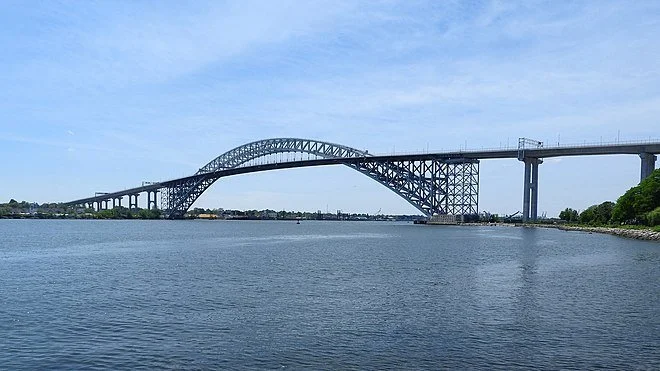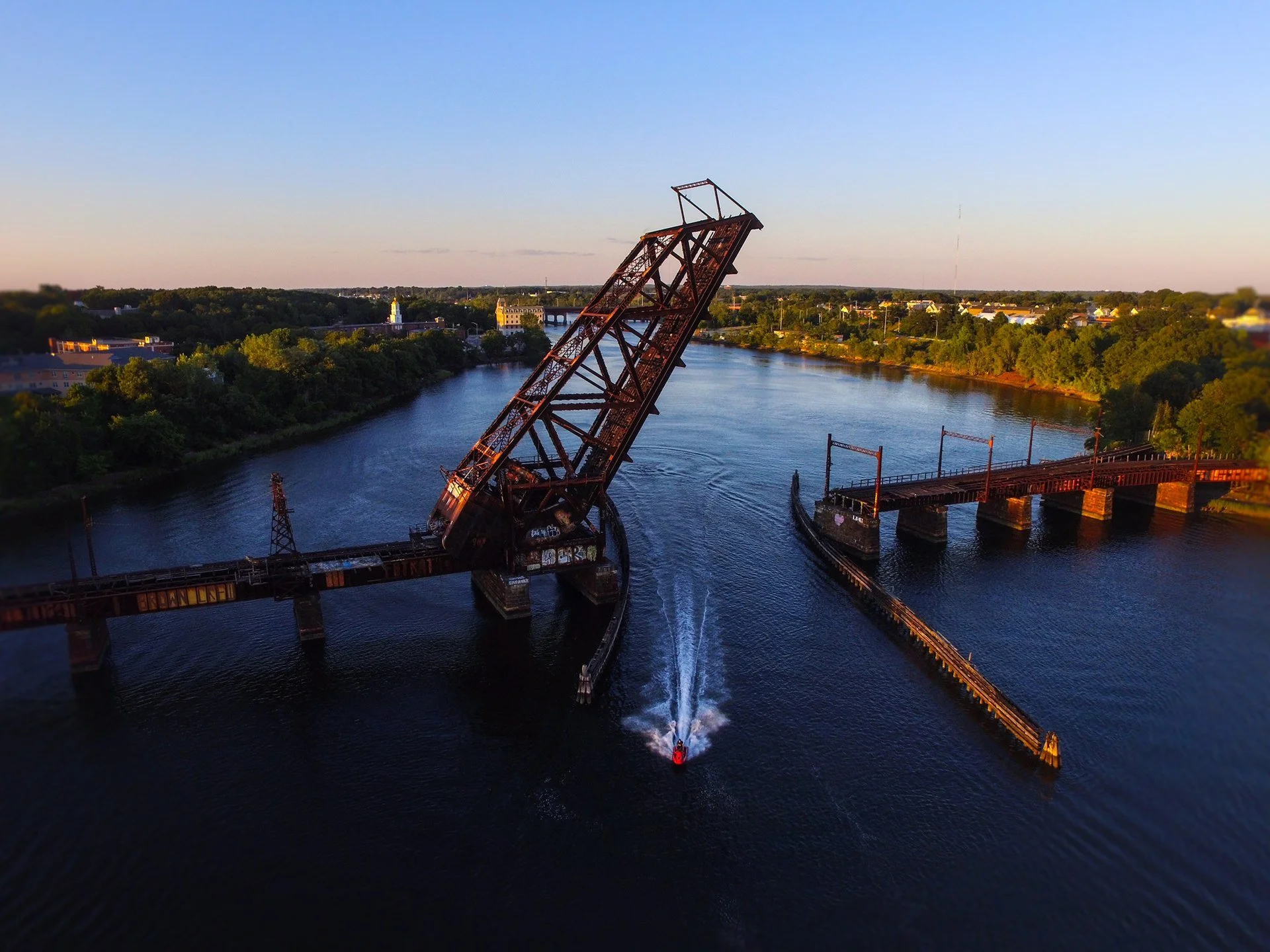Philip K. Howard: Our governing processes have become paralytic, and what to do about it.
The Bayonne Bridge, where an urgently needed improvement has been blocked by inane regulatory red tape.
Crook Point Bascule Bridge (1908), once connecting Providence and East Providence, R.I. It’s been stuck in upright position since 1976.
— Photo by Matthew Ward
Governing is not a process of perfection. Like other human activities, governing involves tradeoffs and trial and error. One of the most important tradeoffs involves timing. Delay in governing often means failure. Nowhere is this more true than with environmental reviews for infrastructure. Every year of delay for new power lines, modernized ports, congestion pricing for city traffic and road bottlenecks means more pollution and inefficiency.
New York Times columnist Ezra Klein has awakened liberal readers to the reality, hiding in plain sight, that governing processes are paralytic: “The problem isn’t government. It’s our government. … It has been made inefficient.”
The other week columnist George Will asked whether America “can do big things again.” Citing our work, and the absurd 20,000-page review for raising the roadway of the Bayonne Bridge, which connects Bayonne, N.J., with New York City’s Staten Island, to permit new post-panamax ships into Newark Harbor, Will calls out “the progressive aspiration to reduce government to the mechanical implementation of an ever-thickening web of regulations that leaves no room...for judgment.” American Enterprise Institute scholar and Washington Examiner columnist Michael Barone, also citing our work, the other day called for a rebooting of government to “sweep out the ossified cobwebs.”
The recent $1.2 trillion federal infrastructure law contains tools to streamline permitting, including presumptive 200-page limits on environmental reviews and two-year processes that we championed. But actually giving permits requires officials to use their judgment about priorities and tradeoffs, not to overturn every pebble. That may be a problem in current bureaucratic culture. In a letter to the editor of The Washington Post, an environmental official objects to my suggestion that raising the roadway of the Bayonne Bridge using existing foundations “involved no serious environmental impact.” He asserts that “bringing larger, more polluting ships and increased cargo” to the port “would result in increased diesel pollution from both the ships and the trucks transporting the cargo.”
Actually, the new larger ships are much cleaner, pollution-wise and burn much less diesel fuel per container. That’s a reason they’re more efficient. Increasing the capacity of the Newark port will indeed result in more truck traffic, but those containers have to come in somewhere.
You start to see the problem. It’s impossible to talk about environmental impact in the abstract. What’s needed is a governing culture that can make judgments about practical tradeoffs.
In a piece for Fortune on efforts to protect kids online, Jonathan Haidt and Beeban Kidron cite my work on the benefits of a principles-based approach to writing laws.
Julia Steiny in the Providence Journal cites my work in describing how Providence public schools are being crushed by law: “The system suffers from what author Philip Howard calls The Rule of Nobody. He says that the law operates ‘not as a framework that enhances free choice but as an instruction manual that replaces free choice.’”
For the American Spectator, E. Donald Elliott provides a history of Common Good’s effort to bring about infrastructure permitting reform.
Philip. K. Howard is a New York-based lawyer, civic and cultural leader, author and photographer. He’s chairman of the legal- and regulatory-reform organization Common Good (commongood.org) and the author of, among other books, The Death of Common Sense and The Rule of Nobody.

